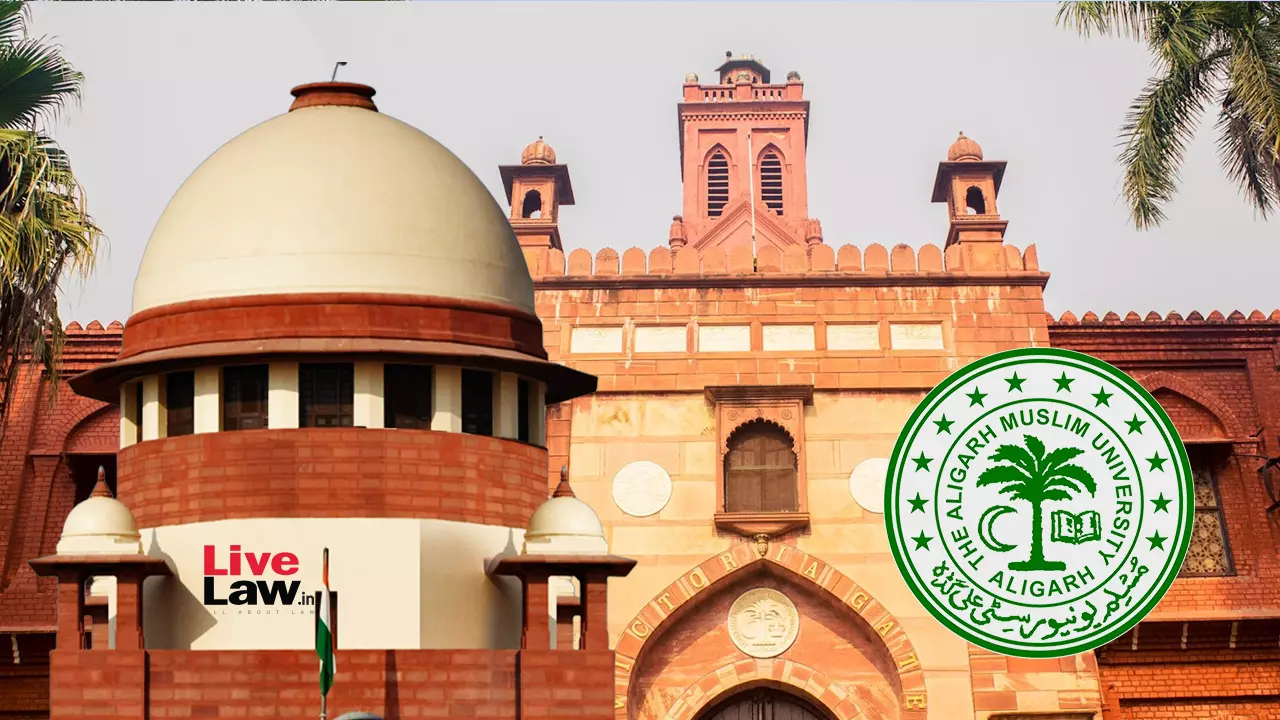BREAKING| Supreme Court To Pronounce Its Judgment Tomorrow On Aligarh Muslim University's Minority Status
Anmol Kaur Bawa
7 Nov 2024 8:50 PM IST

Next Story
7 Nov 2024 8:50 PM IST
The Supreme Court will tomorrow (November 8) pronounce its decision on the issue of granting minority status to Aligarh Muslim University (AMU).The Constitution Bench headed by CJI DY Chandrachud comprising Justices Sanjiv Khanna, Surya Kant, JB Pardiwala, Dipankar Datta, Manoj Misra and SC Sharma was hearing a reference arising out of the 2006 verdict of the Allahabad High Court which held...
